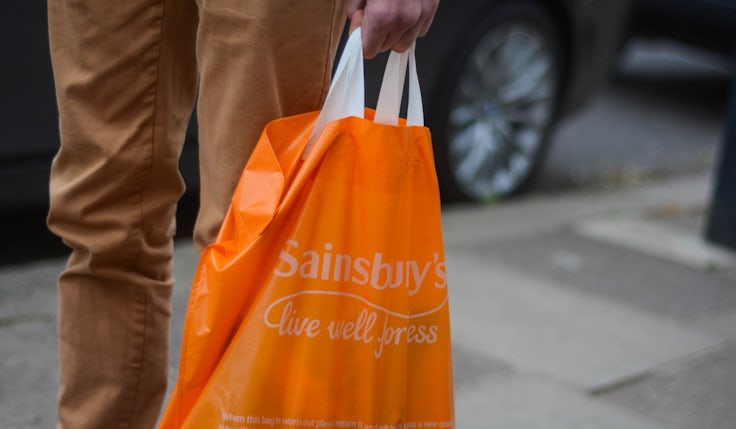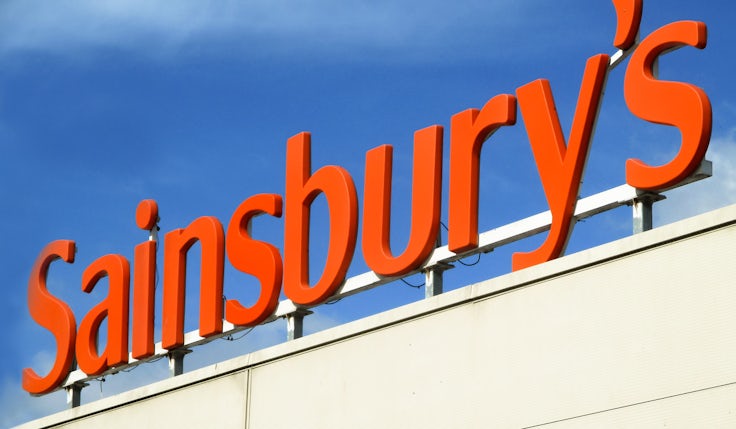Sainsbury’s ramps up value push with promise to undercut rivals
Sainsbury’s CEO Simon Roberts says value will remain the “key priority” for the supermarket over the coming year, as it commits to “keeping prices low” despite rising inflation.
Sainsbury’s says it will continue to push rivals on price as it claims to be “outperforming” key competitors on value, innovation and service.
Addressing rising inflation, chief executive Simon Roberts said value will be the “key priority” for the retailer over the coming year. He said Sainsbury’s will continue to “inflate behind competitors on the products customers buy most often”, citing a “bold phase of investment” outlined last week to lower prices across 150 high volume fresh products.
With the cost of living crisis worsening, he said the supermarket is doubling down on its ambition to become “more competitive”, something which it has been focused on for the past 18 months and has driven “strong” grocery volume market share performance.
As part of this push, Sainsbury’s has launched a series of cost-saving measures, including bolstering its Aldi Price Match and locking the price of around 2,000 everyday staples. The retailer says it is has been able to improve prices by “investing ahead of competitors” with a clear focus on fresh food and claims its price position has remained strong, improving 310 basis points against Aldi, year on year.
“We know just how much everyone is feeling the impact of inflation, which is why we’re so determined to keep delivering the best value for customers,” he said on a results call this morning (28 April).
“We’re able to drive more investment into lowering food prices, because we’ve been bold in our cost saving plans…We have a really clear long-term focus on keeping prices low and we will remain committed to helping everyone eat better whatever the external environment may bring.”
Nectar Prices personalised value is a key part of our value platform alongside what we’re doing elsewhere in value.
Simon Roberts, Sainsbury’s
Sainsbury’s has also strengthened its loyalty offer as part of this plan, with the introduction of personalised deals via Nectar Prices, which launched at the end of last year.
My Nectar Prices is available to customers using Sainsbury’s SmartShop scan-as-you-go shopping via the app and is currently being used by a million people.
Roberts said he is “really pleased” with how the trial is going as it is driving up value perceptions. Sainsbury’s now plans to roll out the scheme to more channels.
“It’s really clear customers are valuing that and they really like that the value they are seeing is on products that uniquely relate to them and so what we’ve seen is more and more customers are joining digital Nectar, so we’ve now 9.3 million digital Nectar users,” he told Marketing Week.
“We’re seeing over a million customers using SmartShop to access My Nectar Prices. We’re seeing value perceptions in SmartShop uplift as we do that and given how encouraged we are with this we expect to roll this out across further channels too. Nectar Prices personalised value is a key part of our value platform alongside what we’re doing elsewhere in value.”
‘Fiercely competitive’: Why supermarkets are committing to low prices despite inflation
As well as improving value, innovation also remains a key focal point for the supermarket. Roberts said Sainsbury’s has achieved its target of tripling new products launches, an ambition it set out last July, having added nearly 2,000 new products last year.
Its premium range Taste the Difference has also seen a boost, with sales increasing by 15% on a two-year basis.
Becoming HFSS compliant
With the introduction of new legislation around products that are high in fat, sugar and salt (HFSS), the supermarket is currently working to ensure it is compliant come October when the new rules come into effect, which Roberts said is a “big undertaking”.
“We’ve 600 supermarkets and this requires us to re-lay significant parts of the store, particularly with a focus on products that are in a promotional space. HFSS products will no longer be able to be in those locations and therefore [we need to think about] our wider offer and how we’re going to use that space differently,” he said.
“So we are spending a lot of time and focus and cost on making sure we can land that well.”
He said Sainsbury’s is working on the changes needed for HFSS alongside a “big focus” on improving the food experience in store generally, which will mean “better products, better service, new products” for “hundreds of stores this year”.
Building ‘momentum’
Overall, Sainsbury’s saw group revenue over the 52 weeks to 5 March, including fuel, increase to £29.9bn, up 2.9% year on year and 3.1% compared to two years prior. The business made a statutory pre-tax profit of £854m, up 207% on the same period two years ago, reflective of lower restructuring costs.
Retail sales excluding fuel hit £28.1bn over the year, down 2.6% year on year, but up 4.6% on a two-year basis.
Digital sales hit £10.8bn, down 11% on 2021/2020 when lockdown fuelled the adoption of ecommerce, but up 80% on 2019/2020. Some 39% of sales are now made via digital channels, while online groceries accounted for 17% of overall grocery sales during the year.
We’re able to drive more investment into lowering food prices because we’ve been bold in our cost saving plans.
Simon Roberts, Sainsbury’s
At its peak, online accounted for 21% of sales, but this figure now stands at around 15%, Roberts said, as customers’ shopping behaviour normalises.
“It’s still twice the number of orders that we had before the pandemic, but less than was the case at the peak in terms of online,” he added.
He also said customers are returning to stores and visiting more frequently, which is bringing down basket sizes.
Total grocery sales rose by 7.6% on a two-year basis but remained broadly flat compared to the same period last year. However, general merchandise sales fell 4.6% on a two-year basis and 11% versus last year, which the retailer puts down to availability challenges in key product areas and a focus on “profitable sales”.
Sainsbury’s ramps up value play with ‘bold new wave’ of Aldi price matches
In terms of the wider group, Argos is now a profitable business, with 80% of sales originating online. Tu Clothing has become a £1bn brand, with sales growth of 3.1% on a two-year basis, underpinned by online sales growth of 49%.
“We said we would invest in value, innovation and service and that’s exactly what we’re doing,” Roberts said. “We have outperformed key competitors on both a one and two-year basis, while also delivering strong underlying profit growth, improved returns and consistent retail free cash flow. This gives us a strong foundation to keep building momentum in the year ahead.”








Comments